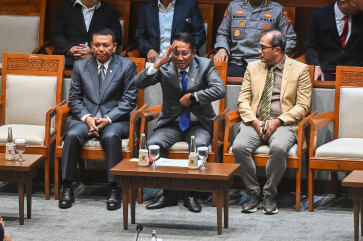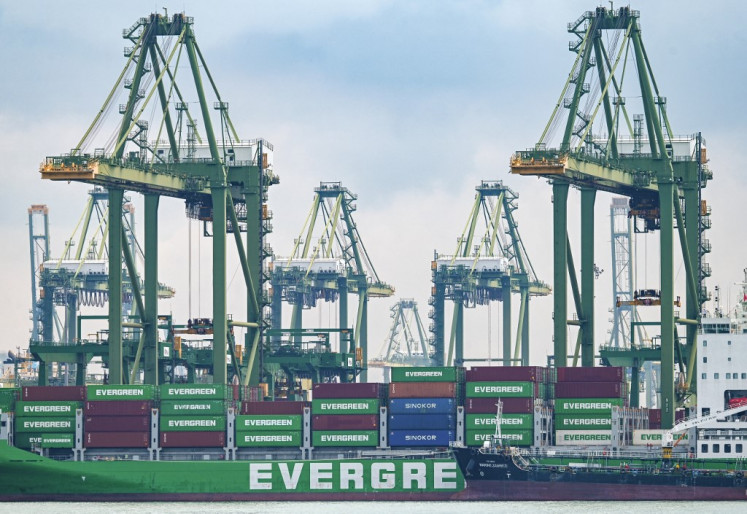Popular Reads
Top Results
Can't find what you're looking for?
View all search resultsPopular Reads
Top Results
Can't find what you're looking for?
View all search resultsPLN labor union to challenge new law on electricity
A labor union of state power utility PT PLN is gearing for a legal battle at the Constitutional Court as it challenges a new electricity law that opens up private participation in power supply and distribution, ending the PLN monopoly
Change text size
Gift Premium Articles
to Anyone
A
labor union of state power utility PT PLN is gearing for a legal battle at the Constitutional Court as it challenges a new electricity law that opens up private participation in power supply and distribution, ending the PLN monopoly.
“Wednesday will be our first court session,” PLN labor union’s chairman Ahmad Daryoko confirmed Tuesday.
Ahmad said the union would specifically challenge the law’s article 10 which stipulates “Electricity provision for public needs may be done in an integrated manner”.
Ahmad said: “[The clause] ‘may be integrated’ implies that this also may be not integrated or may be unbundled and this violates our constitution.” He reiterated that article 33 of the Constitution stipulated that all production facilities essential for the public must be controlled by the state.
“But, when electricity provision is unbundled, the power may be generated by [lets say] the US, the transmission may be provided by China, etc. If this happens, electricity provision will no longer be controlled by the state,” Daryoko said.
Back in 2004, the Court annulled the electricity law, Law No. 20/2002, since several of its articles were thought to be in violation of the Constitution. Daryoko said he believed the Court would also accept the current appeal as, according to him, the new law is in the same spirit as the annulled one.
The new electricity law, Law No. 30/2009, ends the PLN monopoly, because it stipulates that the electricity business, ranging from power generation to distribution, can from now on be carried out by state enterprises, state regional companies, private companies and cooperatives.
The new law also enables the regional governments and legislators to set regional electricity tariffs, but details on this matter are still awaiting required implementing regulations.
Despite some breakthroughs and changes energy analyst Fabby Tumiwa said the new law failed to answer the main problem hampering the development of the electricity sector.
“The law maintains the subsidized tariff which is not good for attracting investment. “Investors will be reluctant to provide loans for PLN as the company’s main revenue is from subsidies which are political,” Fabby said.
He added that in his opinion the regulation on regionalizing electricity management would also discourage investors as this would lengthen bureaucratic procedures.
“Under the new regulation, the investors now must also deal with the regional legislatures,” Fabby said.
The power shortage has been the major factor hampering the economy.
Only 65 percent of the nation is connected to the PLN national grid and the PLN grid system frequently suffers from blackouts due to lack of sufficient production capacity and an over-burdened transmission system.










